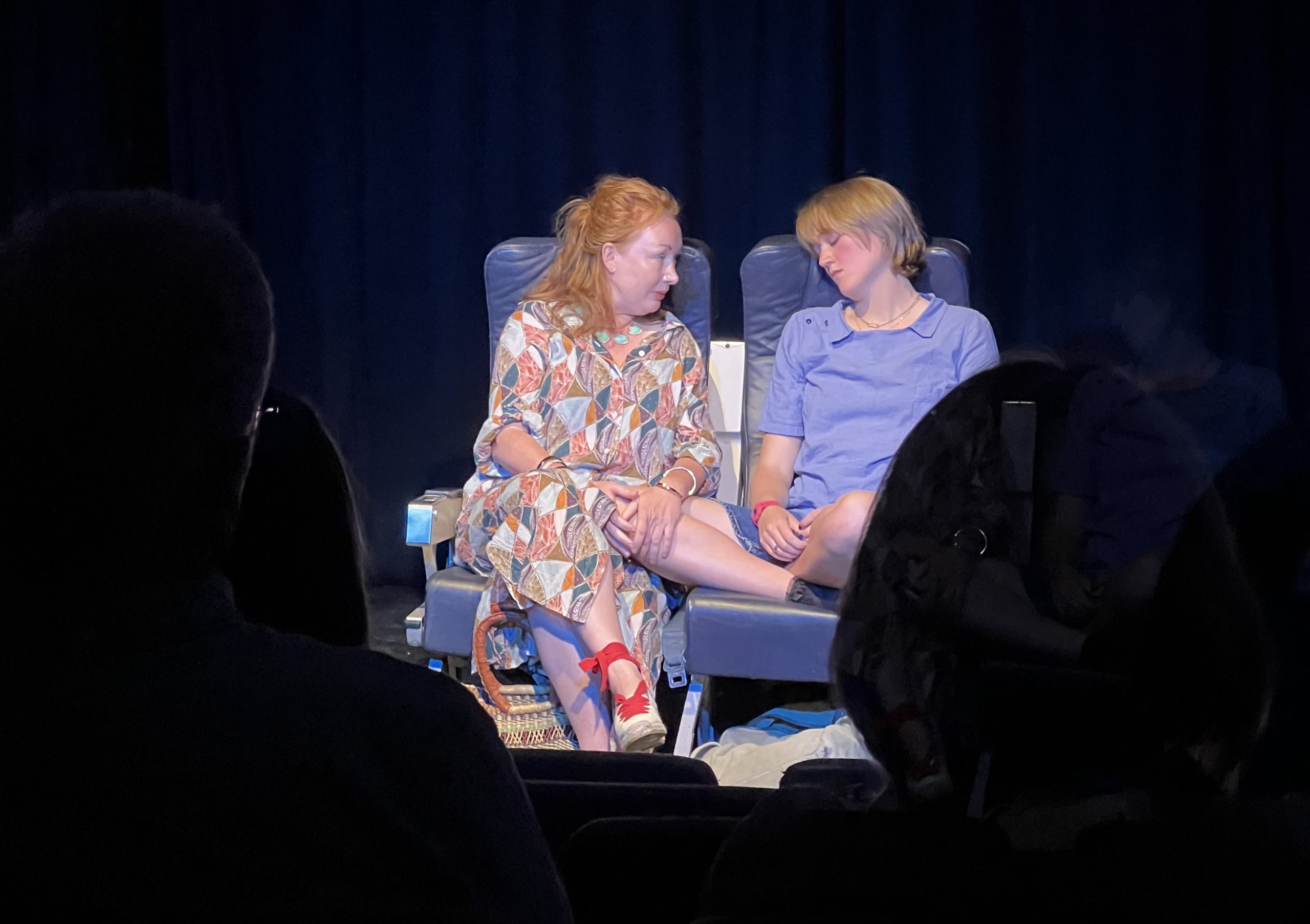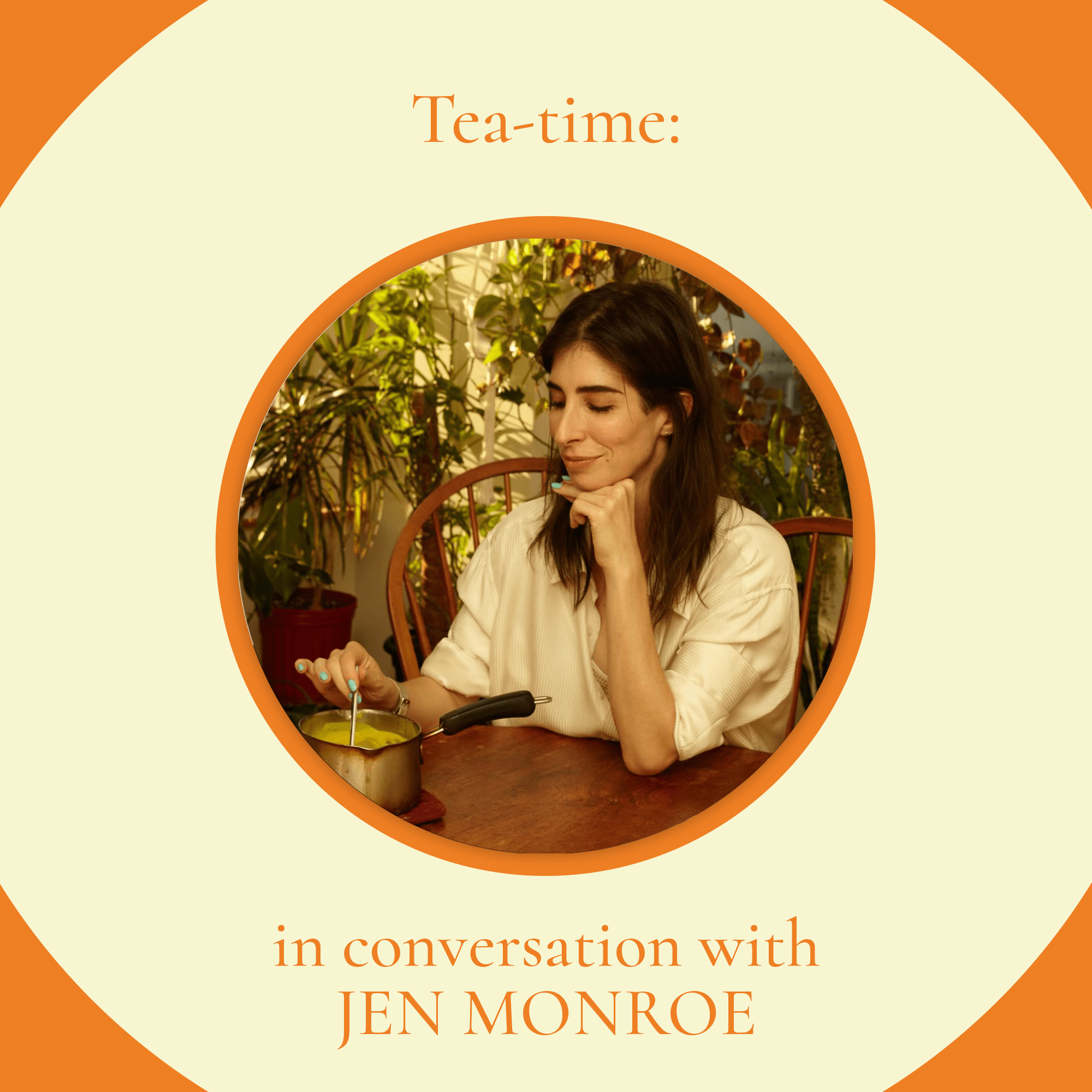
Window Seat: no lizards, just heart

In my first year living in Edinburgh, essentially a naive little tourist, I was handed a flyer to see a free show named Lizard Boy. The people pleaser in me could not say no. I walked myself to the small venue off the high street and sat on my own in the back. How I would explain to my family that I would be two hours late coming home because I was watching a musical named Lizard Boy, starring a boy with lizard scales? Lo and behold, the show turned out to be not particularly bad. It was an inspiring story about finding love as a queer person—with scales. Lizard Boy was my introduction to the Edinburgh Fringe. A very accurate introduction. Fringe shows are chaotic, strange, slightly awkward, sometimes brilliant, but always a fun time.
Now, in my eighth year living in Edinburgh, I have become a festival season veteran. While most locals choose to avoid it entirely, either via house arrest or a holiday abroad, I find it to be the most beautiful time to live in this city. There is a buzz of comedians, artists, and authors that a city normally filled with students, middle-class families, and elderly people desperately needs. As a festival veteran, I believe I’ve found the perfect formula to exploring the Edinburgh Fringe. First, see a few free unplanned, alleyway shows with some drunk friends. Then move on to a well-reviewed serious play. Finally, see as many student productions as you can manage. As such, I was elated at the chance to see my first Oxford play turned Fringe show: Window Seat, written and directed by Cleopatra Coleman
Window Seat is a cozy, light-hearted comedy exploring a complex relationship between a mother and daughter through conversations between them on an airplane, while waiting for take-off. Lois, played by Maud May, is fresh out of university, navigating being young and its proximity to “restlessness” and “this general layer of toughness” in people. Her mother, Trix, incredibly portrayed by Helen Rose-Hampton, spends her time “putting on a show for her daughter” (as Coleman puts it), to connect with her and bridge their generational gap. The show also refers to a few side characters: a brother, some friends, the dad—all meant to mirror the ways Lois feels about her own life. Lois’ pregnant friend Tandy and her brother have settled into adulthood well, but she is struggling to find her way. The narrative explores how these two women, connected by necessity and identity, navigate the intricate dance between love, loyalty, and the desire for independence.
Window Seat began as a sold-out Oxford University production, praised by Cherwell as “hilarious… a joy to watch.” While the show was originally somewhat inspired by Coleman’s own experiences, it has evolved since its Oxford days into a much more mature production. Coleman spoke to me about how the show became a much more collaborative experience at the Fringe with the actors making a mark on the script. Coleman explained how the characters took a new shape after the more age-appropriate casting for the Fringe. In particular, May’s impact on imbuing an older perspective onto Lois’s character. Coleman also emphasized the importance of the show being light-hearted and affirming for Fringe audiences. As she put it, “a lot of plays end as a f*ck you to the audience,” something she didn’t want to bring to the Fringe.
The minimalist set helps the audience connect with the play. Coleman describes that she wanted the conversations to take place in a constrictive, intimate space where the script’s realism can be pushed to its limits. She thinks it is easier for people to open up while sitting side by side, instead of facing each other. Similarly, though Coleman wishes she worked with more set and costume designers, the costume evolved quite well. The characters work through their clashing personalities, but it was unclear to Coleman whether they needed to occupy similar aesthetic spaces. Settling on a happy medium helps the audience to focus more on the conversations, as opposed to any loud or bold choices.
Whilst reading the script I was struck by the ways that the characters were, for mother and daughter, quite comfortable talking about sex. Coleman herself said she did not realize this fact until rehearsals, but she felt it made sense for the characters, in particular for the ways that Trix is trying to entertain her daughter. The ending does a decent job of connecting the characters on something more adult, namely Trix’s old whirlwind romance. To “seduce her daughter,” Trix recants this charming story of her first time falling in love, and her first time in Florence. Through this the characters find a new way to communicate, bridging the gap towards a sweet ending.
Window Seat was great. Coleman’s writing is fresh, poignant, and fun—even if it was no Lizard Boy moment for me. Walking out of the show, I spotted two older women who were moved to tears by the show. Coleman told me that Rose-Hampton herself had been known to cry after nearly every show. Window Seat certainly did not have that impact on me, but that is okay. I was not expecting the play to speak to the complex dynamics of being the oldest immigrant daughter of a single mother. And still, it clearly spoke to something similar in other people. For me, that is the beauty of Fringe shows. You might wonder into a comedy musical, where the main character is part Lizard, that changes your entire perspective on the new city you live in. You might end up watching a good, well-written play that is not for you. Either way you will become a lover of the hard work that goes into everything you see. Either way, you will become, as Coleman put it, “part of the collective experience” which makes this city so beautiful. ∎
Words by Lina Osman. Images courtesy of Lina Osman.







